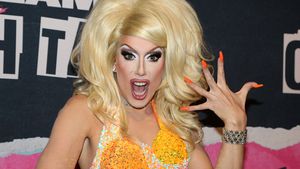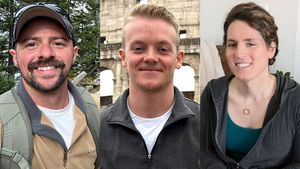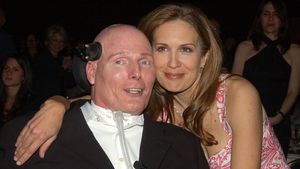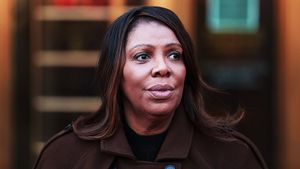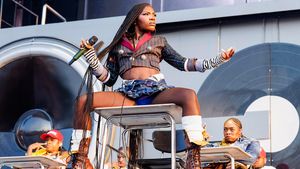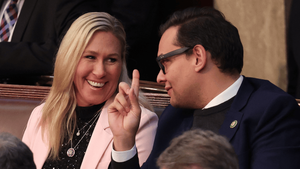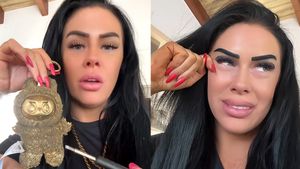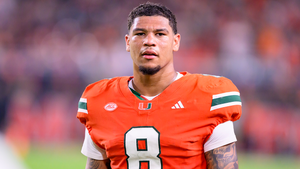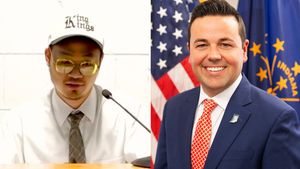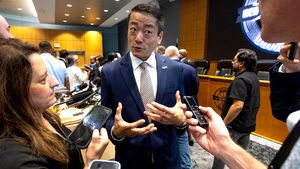If you want to be held up at the USA/Canada border for an hour, tell border security that you're traveling to volunteer at an eco-feminist animal sanctuary.
"Where are you headed?" asked the officer.
I told him I would visit VINE Animal Sanctuary outside Claremont, Vermont.
"VINE. Is that an acronym? What does it stand for?"
The question filled me with dread. I tend to avoid talking about being vegan among strangers because people make assumptions about you, or worse, they imagine you're judging them just by stating that you, yourself, are vegan. Who is judging whom here?
But at that moment, I had no choice; I was questioned by border security, and there was no way to avoid being 'outed.' I put on my best smile and replied, "VINE stands for Veganism Is the Next Evolution and Veganism Is Not Enough." Unsurprisingly, twenty minutes of questioning followed, followed by requests to see letters confirming that I was invited to the sanctuary and a thorough web search on VINE.
A win is a win; at least I got someone to read up on animal rights that day. There I was, unintentionally promoting the 'vegan agenda' to border security.
More questions followed.
"Are you vegan?"
"Yes."
"How long have you been vegan?"
"Two and a half years."
The customs agent called another agent to read VINE's website. Their expressions were observant and amused.
I shouldn't have been surprised for a couple of reasons. First, organizations like the Animal Liberation Front are considered domestic terrorist groups in the USA, so perhaps security was skeptical about the extent of my involvement in animal rights work. Or it could have been because the USA has strict regulatory policies around foreign agricultural workers; hence, they wanted to ensure none were violated during my stay.
Eventually, I got my passport back and began a seven-hour drive to VINE, an explicitly LGBTQ-led farmed animal refuge that promotes social and environmental justice and animal liberation.
Arriving at the front gate of VINE, I was welcomed by a pair of emus. As I drove up the path to the trailer, I was met by sheep, pigs, goats, and cows. And, of course, the hardworking, hiking-boot, flannel, and carabiner clip-wearing lesbians and other queer folks running the place.
VINE was a multispecies community, a glimpse into what coexistence can look like between humans and animals.
Most of the animals at VINE were rescued from the farming industry. They were brought to the sanctuary by owners who felt a connection and compassion for a particular animal on their farm and consequently wanted to give it a better life. Why some animals on a farm are considered worthy of being saved while others aren't is thought-provoking. However, this isn't surprising given that most of us are willing to spend thousands on our cats and dogs while enjoying a steak or chicken for dinner.
VINE is vegan and unapologetically political in its mission, as am I. 'Plant-based' is a word used to depoliticize the choice of not eating animal bodies. It is intended to recast this choice as a simple dietary preference, detaching it from its pressing ethical context and importance, in terms of both climate change and animal sovereignty. It's become popular because it's more palatable for meat-eaters when acknowledging 'alternative lifestyles.' I use that phrase consciously to echo 2SLGBTQ+ history, for similarly, whether we choose to identify as gay or queer has implications for how much we conform to or challenge cultural norms around gender and sexuality.
This distinction of words is purposeful, aimed at clarifying queer as an identity that stands outside of and in opposition to mainstream society and its normalization of various forms of oppression, as opposed to the term gay, which has historically been tied purely to one's sexual preferences. Queerness, however, has been rooted in opposing dominant hegemony. Queer is political. In fact, in the queer community, there's a famous saying: "Not gay as in happy, but queer as in fuck you." This saying is intended to challenge dominant hegemonic discourses around what is and isn't socially acceptable and how the world should and shouldn't be. Often, people have changed the ending of this famous saying to promote a political message. For example, "Not gay as in happy, but queer as in…dismantle the patriarchy, end racism" and so on.
Similarly, veganism is typically portrayed as a moral stance rather than a dietary choice. For example, Howard Lyman, an award-winning animal rights activist, wrote that "Veganism isn't just a strict vegetarian diet; it is a complete philosophical viewpoint...[that] aspires to the highest environmental and spiritual values." Given veganism's fundamentally ethical meaning, I think it's fitting to draw parallels to the inherently political nature of the word queer. Though less pithy and in your face, I'm partial to the slogan: "Not plant-based as in I like tofu, but vegan as in I believe all sentient beings deserve respect and the freedom to live outside human desires."
Of course, there are lots of vegan people who are cisgender and straight. Anyone can and should be vegan, regardless of other aspects of their identity. However, for politically queer-identifying, nonviolent, feminist folks, committing to veganism is one of the most significant steps you can take in aligning your actions with your values. It's time for queer people to extend their social action to animal rights. It's time that more of us are 'queer as in vegan.'
If you need a little extra motivation, know that the vegan community is full of queer people. So who knows, you'll meet an attractive someone over a block of tofu at your community's next animal rights meetup. Or, like me, you'll make some new friends at an animal sanctuary, whether the two-legged or the four-legged kind.
Cogie Cogan is a passionate advocate for animal rights, pursuing an undergraduate major in Animal Ethics and Sustainability Leadership at Huron University College. They have worked as an animal welfare research assistant, are currently a member of the ProVeg International Youth Board, and founder of Huron Protection of Animal Welfare Society (HPAWS). Their work has brought them to multiple United Nations conferences and they have spoken at events on the important of climate action and animal welfare.
Voices is dedicated to featuring a wide range of inspiring personal stories and impactful opinions from the LGBTQ+ and Allied community. Visit pride.com/submit to learn more about submission guidelines. We welcome your thoughts and feedback on any of our stories. Email us at voices@equalpride.com. Views expressed in Voices stories are those of the guest writers, columnists and editors, and do not directly represent the views of PRIDE.com or our parent company, equalpride.











